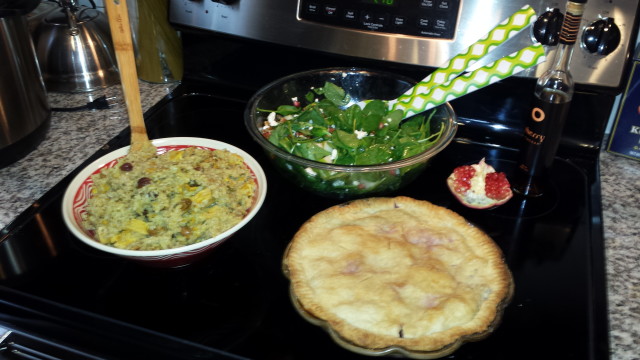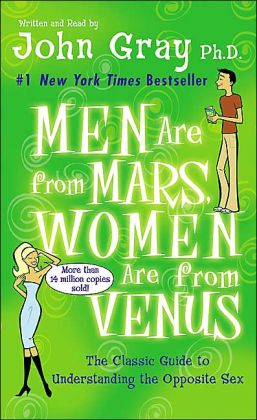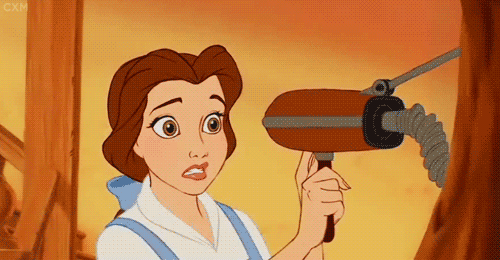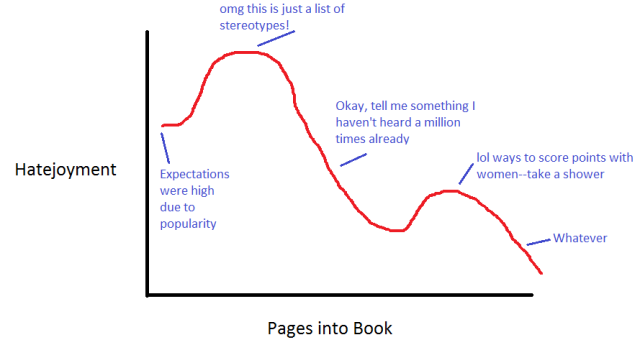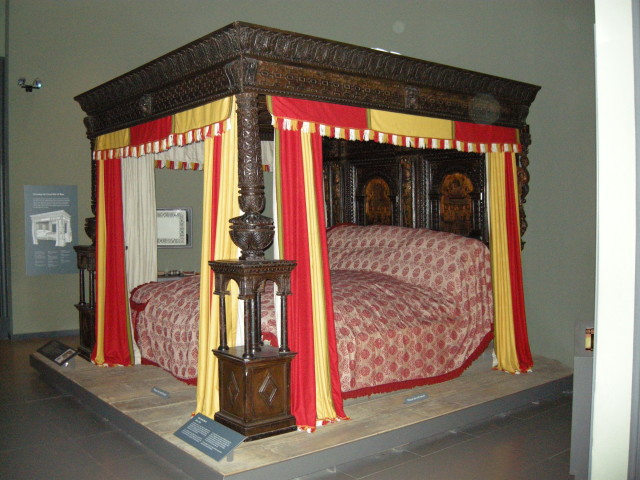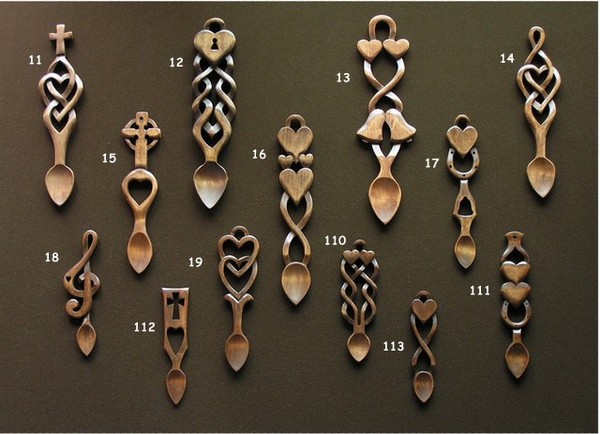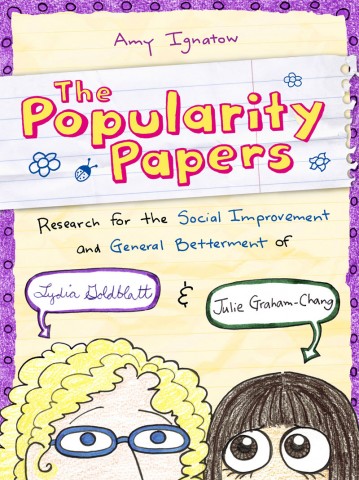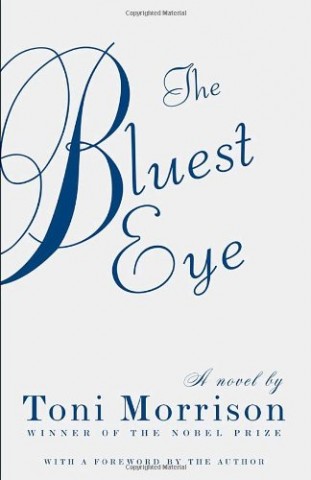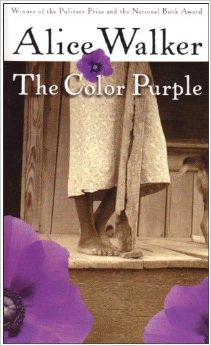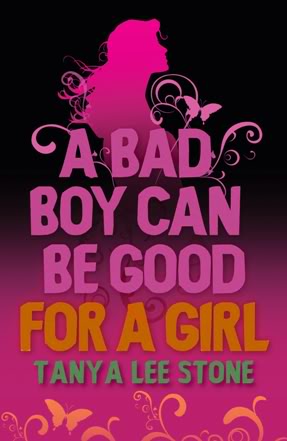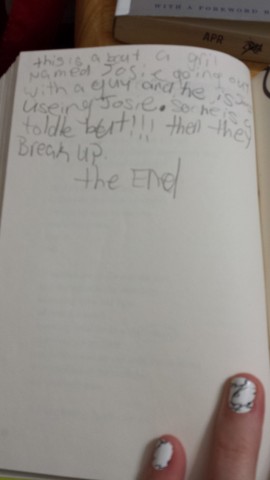
Welcome to Hate Book Club!! A book club Brian Reinhart and I formed to read books we think we’re going to hate, and then review them on our respective blogs. Here are the rules of Hate Book Club:
1) We have to choose books neither of us have read before
2) We have to say THREE (3) positive things about the book
2a) They can be sarcastically positive
3) Each review must include one graph
4) Final opinion of the book must be summed up in gif form
Hopefully this project will also allow me to poach some readers from Brian’s seriouspants blog. Hello, Person Who Probably Has An Opinion About David Foster Wallace! Let me show you what a gif is:

It’s basically the same as the postmodern art you enjoy, you’ll be fine.
Anyway, the first book we chose for Hate Book Club was Real Marriage: The Truth about Sex, Friendship, and Life Together by Mark and Grace Driscoll. If the name “Mark Driscoll” sounds familiar to you, it’s probably because you remember the controversy recently when he referred to women as “homes for penises.” Definitely a guy you want to take relationship advice from!!
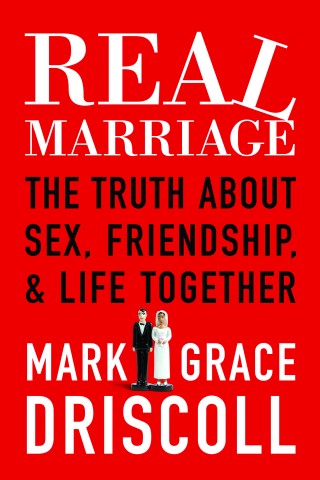
Spoiler alert: my marriage isn’t real
Let’s get the compliments out of the way so I can begin to block out the memory of thinking anything nice about this guy:
1) He uses the Oxford comma throughout his entire book.
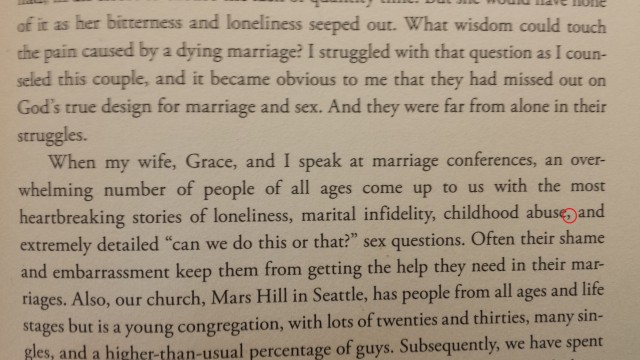
It’s important
Working in the academic publishing industry has taught me that serial comma use is far from universal, despite the fact that not using it makes you seem like an illiterate assface (YEAH, I SAID IT, New York Times stylebook, BRING IT). If you don’t use the Oxford comma, I hate you. It’s pretty much that simple.

I just want to save you from yourself
I still hate Mark Driscoll, but I have other reasons.
2) He taught me a story about Martin Luther I didn’t know.
In the early morning hours one Easter, twelve young runaway nuns climbed into empty fish barrels and were smuggled out of their convent. Their unlikely hero was a renegade monk they had written to, imploring him to rescue them so they could marry and one day become mothers. The escape was a daring and successful adventure, and it led to a most unusual friendship and marriage. The hero monk? Martin Luther. (19)
Okay, to be fair, I didn’t fact check this story at all, because I was afraid I’d then have to think up another compliment for Mark Driscoll and I have a lot of other things to do right now. So, regardless of this story’s veracity, it is fun and would make a great historical action movie.
3) He stresses that friendship is the basis of marriage.
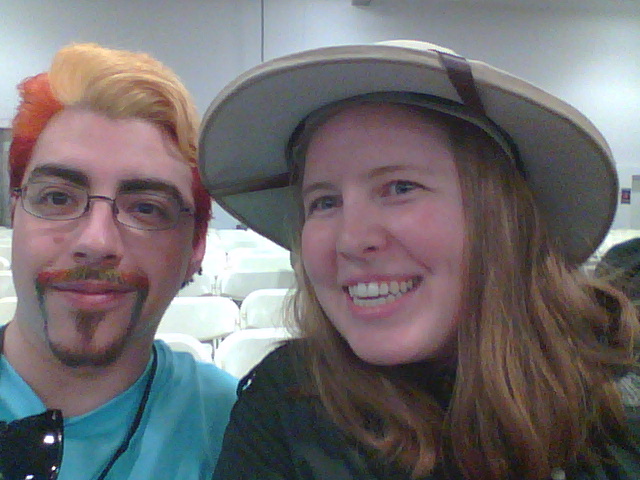
Well, it is
Okay, now that that’s out of the way, let’s get to my hates:
On the first page of the preface, Driscoll pretty much sets the tone for how you’re supposed to take his marriage advice:
Don’t say, “I [we] tried that, and it did not work.” If it’s rooted in biblical wisdom, keep trying until it works or you die. (xi)
OR YOU DIE. His marriage advice will either work OR KILL YOU. No other options.
This book has a lot of advice you’d expect from an evangelical Christian, including a staunch adherence to traditional gender roles:
Admittedly, a wife working before kids are born, or who finds a way to make money from home without neglecting her first God-given responsibilities of Christian, wife, and mother is acceptable. But men, you should make money. You should feed your family. (52)
Stay-at-home Dads are truly an abomination in the eyes of God.
These gender roles are totally legit because women are the weaker sex, and therefore need to be protected by men from the harsh realities of the world outside the home:
But since a husband is one with his wife her weakness is his weakness, which means he needs to honor and protect it rather than exploit it. Because she is a crystal goblet and he is a thermos means she is not only delicate but also precious. (49)
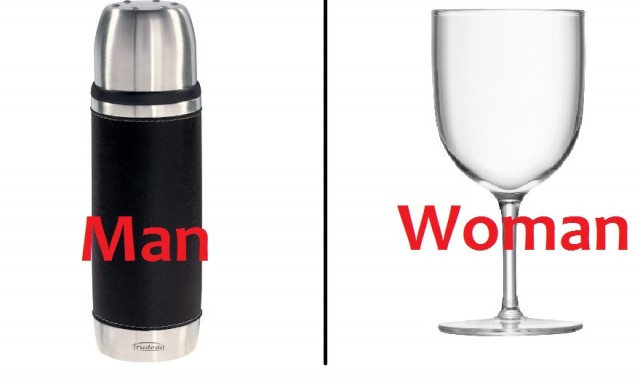
Do you not remember the Bible talking about thermoses? It’s in Acts somewhere.
But, don’t worry, all this lady-oppression is totally rooted in the Bible so you can’t argue with it.
This assignment of the husband to the role of covenant head is not something rooted in culture that can be changed, but rather something rooted in creation that is unchanging. (54)
His list of Biblical evidence for that begins with:
1. God called the race “man” and “mankind” 2. By naming Eve, Adam was exercising authority over her as God commanded (55)
Ah yes, basing sweeping theological arguments on the exact vocabulary in a document that has been translated so many times it is basically like playing a 3000-year game of telephone. “It’s called MANkind.” This argument brought to you by the same people who brought you “Adam and Eve, NOT ADAM AND STEVE.” Classic.
Of course, like any adherence to strict gender roles, men are treated as equally infantile, with a lot of urging to MAN UP and provide for your family economically, emotionally, and spiritually. Driscoll wants us to return to a simpler time when boys became men by achieving important life hurdles in quick succession:
1. leave your parents’ home
2. finish your education or vocational training
3. start a career-track job, not a dead-end-Joe job
4. meet a woman, love her, honor her, court her, and marry her
5. parent children with her
Then he poetically sums up how the “invention” of adolescence and socio-economic circumstances have LED OUR CULTURE ASTRAY:
But the fools’ parade hijacked the march to manhood. (42)
Come on, sixteen-year-olds, why are you wasting your time on the JV soccer team, when you should already have married and impregnated your junior prom date?? GET WITH THE PROGRAM. The MAN program.
Naturally, Driscoll has to caution his readers to follow his advice, unless you want a horrifying secular marriage:
For many men and women, the questions are: Is my spouse keeping up his/her looks, making his/her share of the income, doing an equal amount of the chores, and having enough sex with me, or not? And if at any point I do not believe my spouse is keeping up his or her end of our business arrangement, I simply nullify the deal and file for divorce to the terms of a prenuptial agreement in which the divorce was organized before the marriage began. (54)
I mean, really, he’s got me there. The second I suspect I’m doing more dishes than Steven I whip out our prenup, which, because I’m a feminist, just says “I get everything, sucka!”
But you pretty much expect all this in an advice book about marriage written by a hardcore Christian, right? Perhaps more interesting was Driscoll’s discussion of his own background:
Growing up, my goal was to get out of my neighborhood and enjoy a new and better life… I did not want to get trapped by gangs, drugs, alcohol, crime, or manipulative women. (6)
Hmm… one of these things is not like the others.
He started dating his eventual wife Grace in highschool, who somehow found the courage to be with him though, at the time, she was a Christian and he was not. Then Driscoll undergoes a dramatic conversion after God prevents him from going to a frat party. But just because they were both Christians doesn’t mean the Driscoll marriage was all Happily Ever After. For instance, both seemed to have trouble overcoming pesky secular ideas about equality and getting back to basics, gender role wise:
Grace was pregnant with our first child and suffering… which culminated in me apologizing for not bearing the entire financial burden for our family. She gladly came home from work(11)
Making issues even worse, I (Grace) realized I hadn’t really followed the Genesis command to leave my family and cleave to Mark as my new family… I called my parents “my family,” which made Mark feel as if he and I weren’t family. I had to learn to pray and work through our conflict differently, plan some of our own traditions and memories, set healthy boundaries of privacy, and refer to Mark as “my family” and others as our “extended family”.(10-11)
Sorry, Mom and Dad. I have to cleave to Steven. You’re my extended family now. No word on if the dude’s parents are family or “extended family” though.
Sometimes Driscoll’s treatment of his wife is disgusting, but the reader is clearly meant to side with him:
In this season we shifted into ministry-and-family mode, neglecting our intimacy and failing to work through our issues. This became apparent to me when my pregnant wife came home from a hair appointment with her previously long hair (that I loved) chopped off and replaced with a short, mommish haircut. She asked what I thought, and could tell from the look on my face. She had put a mom’s need for convenience before being a wife. She wept. (11)
Yep. SHE’s wrong for cutting her hair and putting “mom” before “wife” or “my happiness” before “being attractive to my husband.” Your short hair is why you can’t keep a man, ladies. You are right to weep.
Then God grants Driscoll a vivid dream about his wife cheating on him when she was 17, and she later admits that IT WAS TRUE. Then he shuts her out for ten years as punishment for something she did when she was 17, repeating multiple times that, had he known, he would never have married her. Driscoll paints himself as a victimized martyr through all this:
So I put my head down, kept my pants on, and decided not to be the porn or masturbation or adultery guy (13)
Props for not becoming “the adultery guy,” Driscoll. That was so big of you.
Also, my favorite thing I learned from this book:
Emotional adultery is having as your close friend someone of the opposite sex who is not your spouse. (25)
OH GOD I AM AN ADULTERESS FIRE UP THE BRANDING IRON AND SLAP THAT A ON MY FOREHEAD:
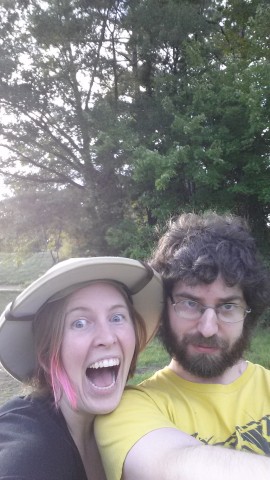
ADULTERY
Near the end of the book, Driscoll addresses the most common sex advice questions he gets from Christians, asking whether certain things (porn, sex toys, etc) are okay or not from a Biblical standpoint. This section was surprisingly boring, and I can sum it up in chart form:
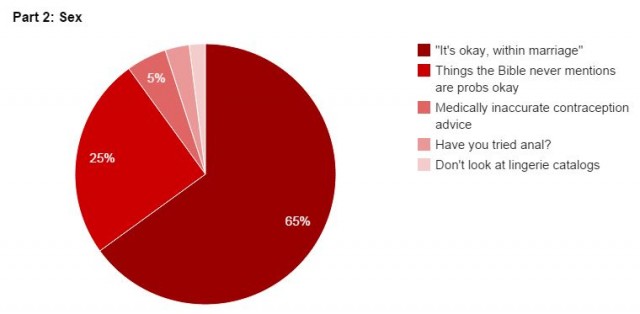
All in all, this book was fun to read aloud, especially to an engaged couple I was counseling as a dutiful wedding officiant. This book didn’t really shock me with its contents, I guess because I kind of knew what to expect going in. Sadly, nothing about it really lived up to a “penis homes” level of ridic, so my reaction was just generally:
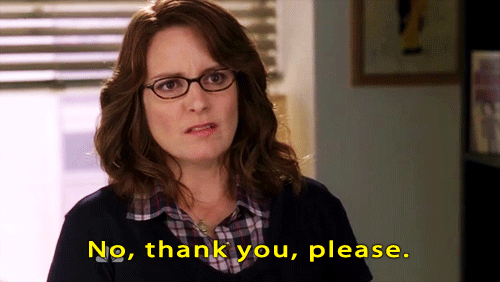
Don’t forget to read Brian’s writeup here.
Yay Hate Book Club!!!!

